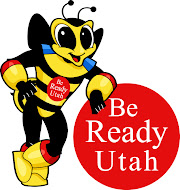When preparing for an earthquake,
plan on having enough supplies to get
you and your family through at least
the first 72 hours. After a major
earthquake, there's a good chance that
traditional emergency response teams
will be too busy to take care of you and
your family. You need to prepare your
home and neighborhood.
The PlanStock up on at least a three-day supply of
food, water, clothes, medical supplies and other
necessary equipment for everyone in your
family. Make sure everyone knows where to
find them.
Decide where and when to reunite your family
should you be apart when an earthquake
happens.
Choose a person outside the immediate area to
contact if family members are separated. Long
distance phone service will probably be restored
sooner than local service. Do not use the phone
immediately after the earthquake.
Know the policies of the school or daycare
center your children attend. Make plans to have
someone pick them up if you are unable to get
them.
If you have a family member that does not
speak English, prepare an emergency card
written in English indicating that persons
identification, address and any special needs
such as medication or allergies. Tell that person
to keep the card with him/her at all times.
Conduct Earthquake: Duck, Cover & Hold
drills every six months with your family.
Know the safest place in each room because it
will be difficult to move from one room to
another during an earthquake.
Locate the shutoff valves for water, gas and
electricity. Learn how to shut off the valves
before a quake. If you have any questions, call
your utility company.
Make copies of vital records and keep them in
a safe deposit box in another city or state. Make
sure originals are stored safely.
Before a quake occurs, call your local Red
Cross chapter and Office of Emergency Services
to find out about their plans for emergency
shelters and temporary medical centers in case
of such a disaster.
Establish all the possible ways to exit your
house. Keep those areas clear.
Know the locations of the nearest fire and
police stations.
Take photos and/or videos of your valuables.
Make copies and keep them in another city or
state.
Include your babysitter and other household
help in your plans.
Keep an extra pair of eyeglasses and house
and car keys on hand.
Keep extra cash and change. If electricity is
out, you will not be able to use an ATM.
General TipsStay away from heavy furniture, appliances,
large glass panes, shelves holding objects, and
other large decorative masonry, brick or plaster
such as fireplaces.
Keep your hallway clear. It is usually one of
the safest places to be during an earthquake.
Stay away from kitchens and garages, which
tend to be the most dangerous places because of
the many items kept there.
This information is from the Utah Seismic Safety Commission and is located on our website
HERE.










